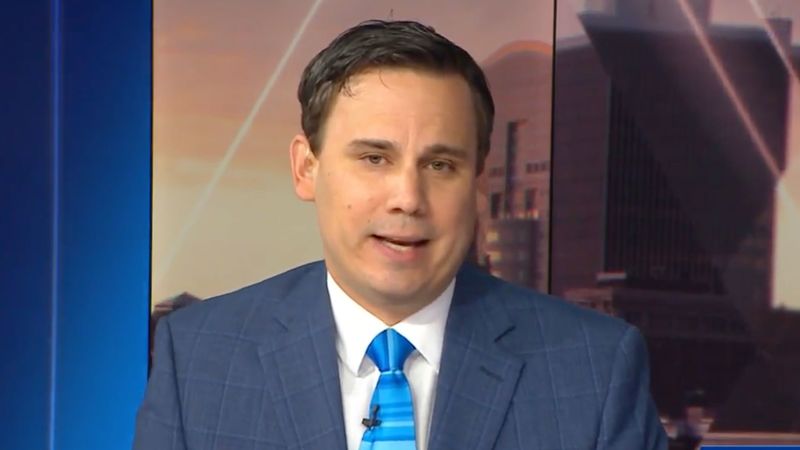
TV meteorologist quits after receiving threats and harassment over climate change coverage
Chris Gloninger spent the last 18 years breaking down Iowa’s latest local weather news. This week, he is making the news.
His departure comes months after receiving a series of harassing emails from a viewer who disagreed with one thing he did on-air: he explained how weather was linked to the climate crisis. He also received other negative feedback via private messages and social media, which has become a common experience for weather and climate communicators.
The decision was not easy, Gloninger told the Washington Post, but in a tweet announcing his exit, he cited a “death threat stemming from my climate coverage” which he said resulted in post-traumatic stress. He also mentioned the need to address family health issues.
The emails from the viewer, according to screenshots Gloninger’s tweeted, called the meteorologist a “liberal conspiracy” theorist and told him to “go east and drown from the ice cap melting.”
It escalated last summer when he received a more menacing threat from the viewer.
“It is mentally exhausting and at times I have not been ok,” Gloninger tweeted at the time. “The threat of course was concerning, but the stream of harassing emails is even more distressing.”
Gloninger said he plans to “embark on a new journey dedicated to helping solve the climate crisis,” in addition to spending more time with family. His last day is on July 7.
A statement from KCCI about his departure said Gloninger plans to go into climate consulting: “Gloninger is leaving television to focus on caring for his family and his own mental health. He plans to pursue work in climate consulting.”
Gloninger’s experience is not an isolated one. Climate change has become a highly politicized topic, despite hundreds of global scientists concluding it is “unequivocal” that humans have caused the crisis and that “widespread and rapid changes” have already occurred around the world.
Climate communicators, journalists, meteorologists and national weather services, including those in the US, Spain and Australia, have reported an increase in harassment, threats and abuse for connecting extreme weather events to climate change.
In a series of tweets posted Friday, Jeff Berardelli, the chief meteorologist at WFLA in Tampa Bay, said while the group of people who strongly deny climate change make up only a small fraction of the US population, “they are very loud, giving the impression they are a much larger slice of the public.”
Berardelli acknowledged it is hard to change the minds of those who deny climate science. Instead, he said he tries to educate those who are open to learning.
“Climate was made political in recent decades, but inherently it is not, so simply don’t accept that frame,” he said in a tweet. “Science is science. Period. Push back [with] science fact, but only with those who are open. Ignore those who would politicize.”
Gloninger has worked for seven news stations across five states. He shared news of his departure from TV news on air this Wednesday, the same date as Climate Stripes Day, where climate-minded people, including scientists and meteorologists, join a campaign to turn the world’s attention toward the climate crisis.
The #ShowYourStripes campaign is a visual one, designed to illustrate how much the Earth has warmed. And during his farewell segment, Gloninger wore a necktie with the iconic pattern on air.
